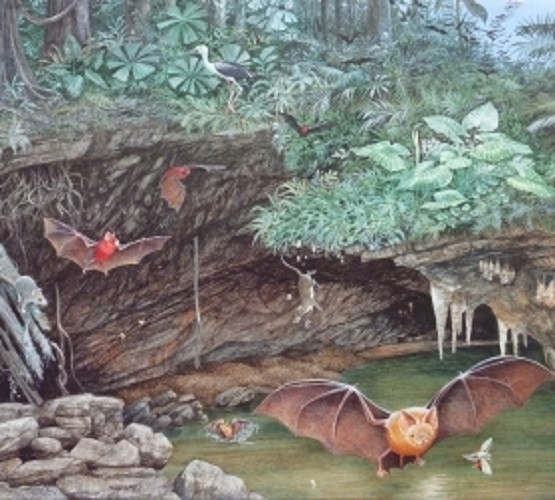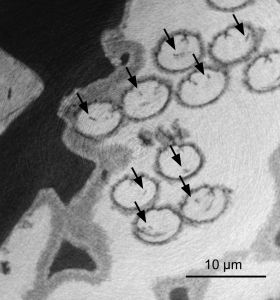'Rain of Bat Poo' Preserves Giant Sperm for 17 Million Years inside Tiny Shrimp

Giant sperm preserved for over 17 million years with a little help from bat droppings has been discovered inside tiny shrimp at a fossil site in Australia.
Researchers at University of New South Wales say the sperm specimen at the Riversleigh World Heritage Fossil Site is the oldest in the world.
The giant sperm is longer than the male shrimp's entire body, but are tightly coiled inside the sexual organ of the fossilised creature – known as ostracods.
Published in the journal Proceedings of the Royal Society B, the researchers first collected the fossils in 1998 and sent them to an ostracod expert who realised they still contained preserved soft tissue.
Mike Archer, from UNSW, said: "These are the oldest fossilised sperm ever found in the geological record. The Riversleigh fossil deposits in remote northwestern Queensland have been the site of the discovery of many extraordinary prehistoric Australian animals, such as giant, toothed platypuses and flesh-eating kangaroos.
"So we have become used to delightfully unexpected surprises in what turns up there.

"But the discovery of fossil sperm, complete with sperm nuclei, was totally unexpected. It now makes us wonder what other types of extraordinary preservation await discovery in these deposits."
Studies of the fossils showed perfectly preserved giant sperm cells, including nuclei that once contained the creature's DNA and chromosomes.
They also had Zenker organs used to transfer the giant sperm to the female. In total, the sperm measured 1.3mm long. They were preserved in a pool of water in a cave that was continually enriched by the droppings of thousands of bats, Archer explained.
The rain of poo from above provided high levels of phosphorous in the water where the ostracods lived, aiding mineralisation of the soft tissues.
Suzanne Hand, a specialist in extinct bats and their role in Riversleigh's ancient environments, explained: "This amazing discovery at Riversleigh is echoed by a few examples of soft-tissue preservation in fossil bat-rich deposits in France. So the key to eternal preservation of soft tissues may indeed be some magic ingredient in bat droppings."
© Copyright IBTimes 2025. All rights reserved.






















